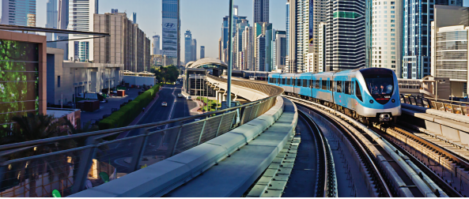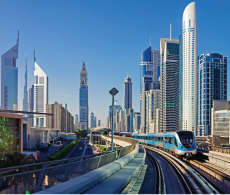September 16, 2015
Employees exhausted by a culture of continuous change at work 0
 A culture of continuous change may be standard practice within larger organisations, but it can have a negative effect on employees, a new report claims. The seven-country Liquid Change Survey of senior executives at large corporations, commissioned by Ketchum Change, found that some leaders are unaware of the effects of so-called change fatigue, despite their employees struggle to keep up. Among partners and board-level executives, only 28 percent think change fatigue is highly prevalent. The survey suggests that to succeed in an environment of continuous change, a more collaborative approach must replace the old top-downmodel. Outlining a clear strategy and goals (43 percent) and engaging with leaders across the organization to co-create the new environment (41 percent) were cited as the most effective ways to get leaders to believe in and actively lead through change.
A culture of continuous change may be standard practice within larger organisations, but it can have a negative effect on employees, a new report claims. The seven-country Liquid Change Survey of senior executives at large corporations, commissioned by Ketchum Change, found that some leaders are unaware of the effects of so-called change fatigue, despite their employees struggle to keep up. Among partners and board-level executives, only 28 percent think change fatigue is highly prevalent. The survey suggests that to succeed in an environment of continuous change, a more collaborative approach must replace the old top-downmodel. Outlining a clear strategy and goals (43 percent) and engaging with leaders across the organization to co-create the new environment (41 percent) were cited as the most effective ways to get leaders to believe in and actively lead through change.

















 The Government is being urged to reassess its plans to request an opt-out from the EU Working Time Directive, when it seeks to renegotiate the terms of the UK’s membership of the EU. The Directive stipulates a 48 hour working week, which the Government has argued is stifling competitiveness and flexibility. According to research by
The Government is being urged to reassess its plans to request an opt-out from the EU Working Time Directive, when it seeks to renegotiate the terms of the UK’s membership of the EU. The Directive stipulates a 48 hour working week, which the Government has argued is stifling competitiveness and flexibility. According to research by 


 One of the most typical claims that suppliers in this sector make about their products is that they will make people more productive at work. Many go so far as to put numbers on what this means, and usually not just 0.4 percent or whatever but something far more. We can understand why they do this because they are seeking to link workplace productivity to whatever it is they have to sell. This is often tenuous for at least two reasons. The first is that even when such a causal link is demonstrably true, it still assumes that all other things at work are equal, whereas they never are because there are so many factors involved. That is why you will find some people cheerfully working in shabby, cluttered, underlit offices while others mope around unhappily in gilded cages with expensive chairs, soaring daylit atria and olive groves. The second is that such claims simply ignore what makes people tick.
One of the most typical claims that suppliers in this sector make about their products is that they will make people more productive at work. Many go so far as to put numbers on what this means, and usually not just 0.4 percent or whatever but something far more. We can understand why they do this because they are seeking to link workplace productivity to whatever it is they have to sell. This is often tenuous for at least two reasons. The first is that even when such a causal link is demonstrably true, it still assumes that all other things at work are equal, whereas they never are because there are so many factors involved. That is why you will find some people cheerfully working in shabby, cluttered, underlit offices while others mope around unhappily in gilded cages with expensive chairs, soaring daylit atria and olive groves. The second is that such claims simply ignore what makes people tick.
 Newly published research
Newly published research
 A new meta analysis compiled by researchers from Harvard Business School and Stanford University raises questions about the way Government and organisational policies designed to tackle the problems of work related health costs in the United States have largely ignored the health effects of ‘psychosocial workplace stressors’ such as high job demands, economic insecurity, and long work hours. The analysis of 228 existing studies assessed the effects of ten workplace stressors on four specific health outcomes. The researchers claims that job insecurity increases the odds of reporting poor health by about 50 percent, high job demands raise the odds of having a diagnosed illness by 35 percent, and long work hours increase mortality by almost 20 percent. They argue that any policies designed to address these issues should account for the health effects of the workplace environment.
A new meta analysis compiled by researchers from Harvard Business School and Stanford University raises questions about the way Government and organisational policies designed to tackle the problems of work related health costs in the United States have largely ignored the health effects of ‘psychosocial workplace stressors’ such as high job demands, economic insecurity, and long work hours. The analysis of 228 existing studies assessed the effects of ten workplace stressors on four specific health outcomes. The researchers claims that job insecurity increases the odds of reporting poor health by about 50 percent, high job demands raise the odds of having a diagnosed illness by 35 percent, and long work hours increase mortality by almost 20 percent. They argue that any policies designed to address these issues should account for the health effects of the workplace environment.







September 10, 2015
Five ways in which your colleagues might be driving you completely nuts 0
by Mark Eltringham • Comment, News, Wellbeing, Workplace
(more…)